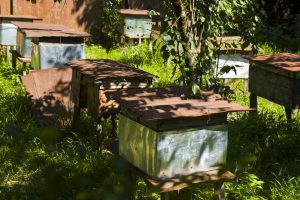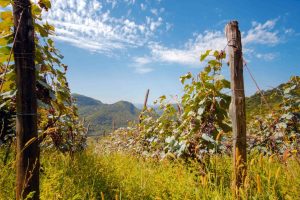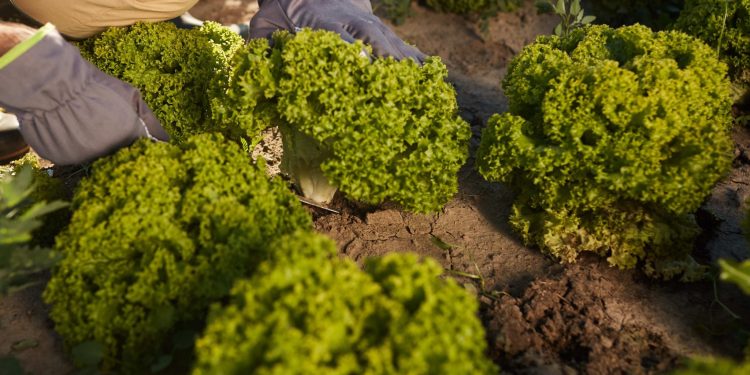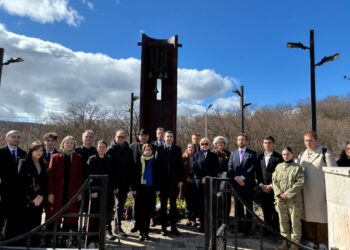In the highland villages of Racha, Georgia, farmers are leading the charge toward a more sustainable, eco-friendly approach to agriculture. With the growing impact of climate change on crop yields and the environment, a group of motivated individuals, including Irakli Kavlashvili, Giorgi Murusidze, and Nino Arsanidze, are adopting climate-smart farming techniques to reduce their environmental footprint while improving their agricultural output. Their work is part of a broader effort to address the region’s agricultural challenges, particularly through specialized training and community collaboration.
The Roots of the Movement: Why Climate-Smart Agriculture Matters
Climate change has made it increasingly difficult for farmers worldwide to maintain stable, productive farms. From unpredictable weather patterns to increased risk of pests and diseases, traditional farming methods are being tested by new and pressing environmental challenges. Climate-smart agriculture (CSA) seeks to address these issues by improving farming practices to make them more resilient to climate-related disruptions, while also minimizing harmful emissions and promoting environmental conservation.
In Racha, this approach is resonating strongly with the local farming community. Farmers in the region have long relied on traditional practices that, while rich in history and culture, may no longer be sustainable in the face of rapidly changing climatic conditions. The aim of CSA is to teach farmers how to adapt, improve crop yields, and protect the environment—three essential pillars for the future of farming in the area.
Irina Kondratieva, a driving force behind the training program in Racha, reflects on the motivations that shaped the initiative. “When I visited the villages and saw the neglected orchards and fruit trees, my heart sank. I realized that much of the hard work of these farmers was being undermined by a lack of up-to-date knowledge,” she explains. “I wanted to help them maximize the potential of their land and give them the tools to protect their environment.”
Irina’s efforts have led to the establishment of a training program supported by CENN and the European Union, aimed at uniting local farmers and teaching them about CSA. The program focuses on three main agricultural sectors: viticulture, horticulture, and beekeeping. Over 60 farmers from remote villages in Racha have participated in this training, which has had a transformative impact on their practices and outlook.
Irakli Kavlashvili: Beekeeping and Sustainability in Action
Irakli Kavlashvili, a 33-year-old beekeeper, is one of the success stories from Racha’s CSA initiative. Beekeeping runs in his family, and Irakli has always felt a deep connection to the land. He divides his time between Tbilisi, where he works professionally, and Racha, where he tends to his bees at his family’s home. When he first started, Irakli had just three hives, but after completing the CSA training, he gained the knowledge to expand his operation and improve the care of his bees.
“I didn’t get into beekeeping just for the income; I wanted to continue a family tradition. But the training gave me a whole new perspective on how to care for my hives,” Irakli shares. Through the program, he learned about modern beekeeping practices that help reduce environmental impact. “Before the training, I had no idea how much impact certain farming methods around me could have on my bees. If my neighbors use harmful chemicals, it will affect my bees, even if I take the best care of them.”
Through the training, Irakli learned to be more discerning about the chemicals used on nearby farms and their effects on the environment. As he became more knowledgeable, his beekeeping operation grew, and today he manages 14 hives. “I stayed in touch with my trainers and fellow farmers after the course, which helped me successfully split hives last year and expand my operations,” he recalls. He is now passing on his knowledge to other beekeepers in the region, helping them transition away from outdated practices that can be harmful to both bees and the environment.

Giorgi Murusidze: A Modern Approach to Viticulture
For Giorgi Murusidze, farming is not just a job—it’s a way of life. Giorgi is part of a family that has been involved in viticulture and winemaking for generations in the village of Znakva, Racha. Unlike other regions of Georgia, Racha is not widely known for its vineyards, but the area is home to unique grape varieties that are crucial for producing Khvanchkara wine. Giorgi’s farm is a key player in preserving these traditional grape varieties while integrating modern, sustainable practices.
Giorgi’s vineyard spans six thousand square meters, where he cultivates grapes such as Alexandrouli and Mujaretuli for his Khvanchkara wine. Like many farmers, he used to follow traditional methods passed down through the generations, including regular spraying of the vines. However, the CSA training introduced him to new, more precise techniques that reduce the environmental impact of pesticide use. “We knew from our ancestors that vineyards should be sprayed every ten days, but now I understand that the timing of treatments must be much more specific. Depending on the weather, the vineyard might need treatment every two days or maybe every two weeks.”
One of the key lessons from the CSA training was the importance of using the right treatments at the right time. “During the training, I learned that using the wrong amount of certain treatments during vine flowering can actually harm the fruit. Now, I use a preparation that works better for my vines and is safer for the environment,” Giorgi explains.
Nino Arsanidze: Gardening with a Green Vision
Nino Arsanidze, a young farmer from Khvanchkara, is a relative newcomer to the agricultural scene. Though he is largely self-taught, Nino’s interest in farming has led him to create his own garden, with plans to grow pumpkins in the fertile soils of Racha. For Nino, the CSA training was crucial in expanding his knowledge of modern farming techniques, but he also found mentorship from fellow farmers to be equally valuable.
“The training gave me not just knowledge but mentors I can turn to for advice,” Nino says. “As I begin my new project, I know I have people to reach out to for help.” This mentorship has proven instrumental for Nino as he navigates the complexities of starting a new agricultural venture.
The Power of Community: A Shared Commitment to Sustainability
The CSA program has also fostered a sense of community among Racha’s farmers. Irina notes the growing interest in sustainable farming practices among young people, many of whom are returning to Racha to pursue farming. “Young families have been actively involved in the project. Some have even returned to Racha to look for land and get involved in farming,” she observes.
This sense of community extends beyond the training itself. Though the courses have officially ended, the farmers involved in the program continue to stay in touch, sharing advice and experiences to help one another succeed. This ongoing support network is essential in ensuring that the principles of climate-smart agriculture are integrated into Racha’s farming practices for years to come.

The Road Ahead: Transforming Agriculture for Future Generations
The stories of Irakli, Giorgi, and Nino highlight the transformative potential of climate-smart agriculture in Racha. By embracing more sustainable, eco-friendly farming practices, they are not only improving their own yields but also contributing to a larger movement for environmental stewardship and resilience in the face of climate change.
Through Irina’s leadership and the ongoing collaboration among local farmers, Racha is moving toward a future where agriculture is both productive and sustainable. The training program has laid the groundwork for a more climate-resilient farming community, and the success stories of these young farmers provide hope that the next generation of agriculturalists will be better equipped to navigate the challenges of climate change while preserving the natural beauty of Racha for years to come.
As more farmers in Racha adopt climate-smart practices, the region is becoming a beacon for sustainable farming, showing that with the right tools, knowledge, and community support, it’s possible to protect the environment while also improving agricultural productivity. The journey has only just begun, but Racha’s farmers are already leading the way.
About the project
Since 2021, CENN has been implementing the four-year Georgia Climate Action Project, funded by the European Union and carried out in partnership with the Kakheti Regional Development Foundation (KRDF), the Chiatura Union (ACU), the Association for Agrotourism Development of Racha-Lechkhumi and Kvemo Svaneti (RLS-ADA), and the Young Pedagogues’ Union (YPU).
The project aims to strengthen civil society and promote human rights in four target regions of Georgia—Guria, Imereti, Kakheti, and Racha-Lechkhumi and Kvemo Svaneti. Its focus is on ensuring the right to access clean water and a healthy environment while enhancing civil society’s role in shaping and implementing climate change policies.
As part of the initiative, CENN launched a competition to identify innovative ideas for climate change mitigation and adaptation. One of the winners were the farmers in Racha, awarded €9,000 to support their efforts.














